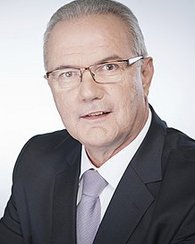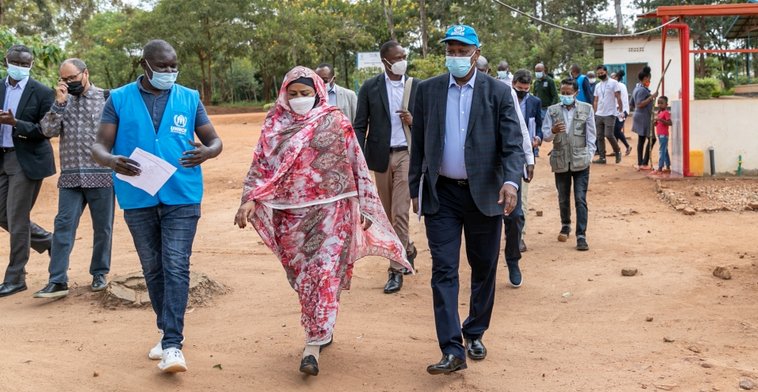Exposed: The EU has been funding the UN to fly illegal migrants to Rwanda for years
Montage © Facts4EU.Org
This report has been co-published with our affiliated organisation, Brexit Facts4EU.Org. We are most grateful for their original research into the raw data which backs what follows.
Almost £50m spent by EU on Rwanda migrant flights since 2019 – and programme continues
Our affiliated organisation, Facts4EU.Org first broke this story on Easter Monday and it was the most read this year
Sadly, this sensational news was not used by the BBC, so here’s an update for them
With the United Kingdom Government – and Home Secretaries Priti Patel and Suella Braverman in particular – being criticised all year for the plan to fly illegal migrants to Rwanda for processing, it transpires that the EU has been funding such flights for the last five years.
The EU-funded United Nations flights started to Niger in 2017 and then to Rwanda from 2019. This programme has now been extended until 2023.
According to both the UN and the EU, Rwanda is a perfectly safe country to house and process illegal migrants (called “refugees” by the UN and EU). The hypocrisy of the open borders globalists and human rights lawyers from the EU, the UN, and from the UK apparently knows no bounds.
On this Boxing Day morning, using official documents from the EU Commission, the United Nations, and the African Union, CIBUK.Org and Facts4EU.Org can bring readers a special update.
Summary
How the EU has funded the UNHCR transfer of migrants in Africa
- Over 5,000 migrants have been flown by the UN, using EU funds, to Rwanda and Niger
- So far, 3,889 to Niger and 1,279 to Rwanda
- So far the United Kingdom hasn’t been able to send a single illegal migrant to Rwanda, thanks to the ECHR
- The majority of migrants (67%) were from Niger, Egypt, Sudan and Chad
- The EU part-funded this using its ‘Emergency Trust Fund for Africa’
- EU funding so far amounts to €55.3m (approx £48m)
- The latest EU extension covers the period up until the end of next year (2023)
[Sources: UNHCR, EU Commission, African Union.]
The ‘Emergency Transit Mechanism Centre’ in Rwanda, © UNHCR 2022 – click to enlarge
The EU’s funding of these flights
It is the EU that is funding this operation, at least in part, using money from its ‘Emergency Trust Fund for Africa’. This is an “off-the-books” EU fund which is not part of the officially-declared EU budget. The UK paid into this fund (c.£600m) when it was a member although this was never included by HM Treasury as part of the UK’s net contributions to the EU budget.
In November 2019 on a visit to Rwanda, the EU’s Commissioner for International Cooperation and Development, Neven Mimica, announced a further €10.3 million grant for the UNHCR’s Emergency Transit Mechanism (ETM) in the country, to provide accommodation for migrants.
According to a UNHCR report which we have seen, this brings the EU’s total so far to €55.3 million.
This Rwanda initiative built on the example of the earlier ETM grant for Niger, through which almost 3,900 asylum seekers have been sent from Libya starting in 2017.
Neven Mimica, EU Commissioner, in 2019

“This project will support efforts of the Government of Rwanda to receive and provide protection to about 1,500 refugees and asylum-seekers who are currently being held in detention centres in Libya. Such a remarkable and powerful proof of African solidarity should be further encouraged, replicated and supported.”
– Neven Mimica, EU Commissioner for International Development and Cooperation, speaking on 19 November 2019
Despite this, Gillian Triggs, Assistant Secretary-General at the UNHCR, described the UK-Rwanda agreement as “unacceptable” and a “troubling development”. This might strike some readers as surprising, given the UN’s actions and their funding by the EU Commission.
The EU’s support continues – Nov 2022
As recently as 01 November this year (2022), members of the EU’s taskforce met with UNHCR and African Union representatives to discuss the continuation of this programme.
This meeting in Addis Ababa, Ethiopia, was a follow-up to the Declaration of the AU-EU Summit, held from 17-18 February 2022, which committed to revitalize the work of the tripartite taskforce.
The Danish government has backed the UK’s decision
In April, Denmark’s immigration minister backed the British Government’s new policy of using a third country to house illegal immigrants.
Danish Immigration Minister, Matthias Tesfaye

“I share the view of the Rwandan and British governments that the current asylum system is unsustainable.”
– Danish Immigration Minister, Mattias Tesfaye, speaking to the BBC, 14 Apr 2022
In August last year he was even more forthright about Denmark’s own policies regarding illegal migrants. He said the following about migrants in Denmark:
“My dream is zero asylum seekers in Denmark, I believe that the existing European asylum system cannot be defended either morally or politically.
“The asylum system is used for migration to an extent that our welfare society cannot absorb, and that challenges cohesion in Denmark. That is why we have to get asylum immigration under control.
“We want to get rid of all expenses for the asylum system with lawyers, accommodation, interpreters, and travel home for those who have had their application rejected.”
– Danish Immigration Minister, Mattias Tesfaye, quoted in Swedish journal, Bulletin, 25 Aug 2021
What do other countries do?
DENMARK’s left-of-centre Social Democrat Government passed a law last year allowing it to move asylum seekers to a country outside the EU for processing. It then entered into a Memorandum of Understanding (MOU) with the Rwandan Government for cooperation on the issue but has yet to announce anything specific coming out of that agreement.
Last year Denmark also began to revoke the residence permits of hundreds of Syrians, arguing it was now safe for them to return.
ISRAEL announced a scheme back in 2015 that involves deals with third country “safe havens” that are believed to be Uganda and Rwanda – although the exact countries involved have not been confirmed by the Israeli Government. Illegal immigrants are given the choice of accepting a payment of $3,500 and a plane ticket to one of the third countries , or returning to their country of origin, or being put in jail if they stay in Israel.
AUSTRALIA started using offshore detention centres in 2001, but in 2013 it toughened its immigration law by denying resettlement visas to asylum seekers arriving by boat. Australia’s Border Force reports more than 4,000 asylum seekers were relocated between 2012 and 2019.
Please support our work to help us to carry on
For the original report, click here : https://facts4eu.org/news/2022_dec_eu_rwanda_flights
